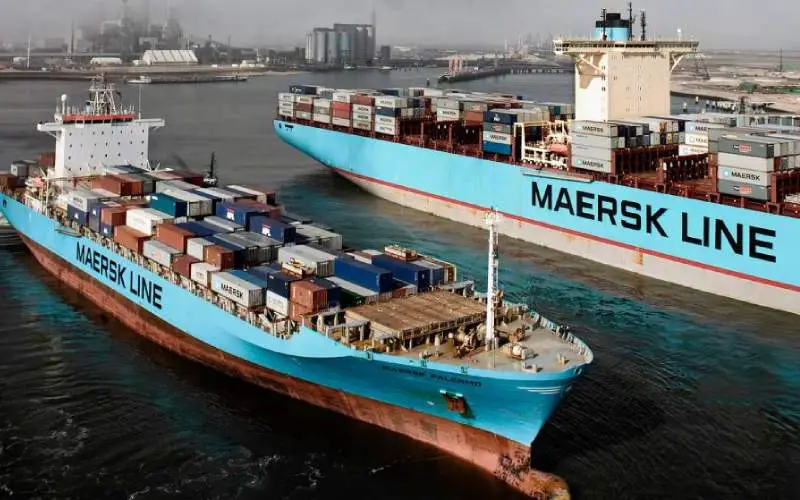Introduction: In an alarming development, the escalating tensions in the Red Sea pose a significant threat to the delicate balance of imports and the supply chain for thousands of European businesses in the coming days. A.P. Moller-Maersk, a major international shipping company and the second-largest within the transportation sector, has declared a suspension of all its routes through the Red Sea until further notice. This decision comes in response to the recent attacks by Houthi militants, further exacerbating the challenges faced by the maritime industry.
Maersk’s Response to Heightened Threats: Following the incident involving their vessel, Maersk Hangzhou, on December 30, Maersk has decided to halt all transits through the Red Sea/Gulf of Aden until further notice. The company stated, “After the incident on December 30 involving our vessel, Maersk Hangzhou, we have decided to suspend all transits through the Red Sea/Gulf of Aden until further notice.”
Hapag-Lloyd Joins Suspension Amid Security Concerns: In solidarity with Maersk and recognizing the security challenges in the region, the German shipping giant Hapag-Lloyd has also decided to suspend voyages through the Red Sea and the Suez Canal until January 9.
Ongoing Investigation and Contingency Measures by Maersk: Maersk has initiated a comprehensive investigation into the recent attack and continues to evaluate the evolving situation. In a statement to its clients, Maersk asserted that an ongoing assessment would guide their decisions regarding future maritime routes. The company mentioned, “In cases where it makes more sense for our customers, ships will be diverted and continue their journey around the Cape of Good Hope.”
Repeat Offense Prompts Heightened Caution: This marks the second suspension by Maersk on this route, the first being on December 15, when one of its vessels fell victim to Houthi attacks. Despite a multinational military deployment led by the United States, Maersk resumed the route. However, the recent attack on its returning vessel has compelled the company to suspend transit until further notice, emphasizing the gravity of the security challenges.
Hapag-Lloyd’s Prudent Decision Amid Cost Considerations: Meanwhile, the German maritime giant Hapag-Lloyd has made a cautious decision to suspend navigation through the Red Sea and the Suez Canal until January 9, citing inadequate security conditions for vessel transit. The company spokesperson informed Reuters, “We are closely monitoring the situation day by day, but we will continue to divert our ships until January 9.”
Impact on Global Trade and Cost Considerations: Given that the Suez Canal serves as a maritime route for about one-third of global ship cargo, the current scenario is concerning for European trade. The decision to reroute vessels around the southern tip of Africa can incur an additional cost of up to $1 million (over 900,000 euros) in fuel for each journey between Asia and Northern Europe.
Conclusion: The suspension of key maritime routes by industry giants Maersk and Hapag-Lloyd underscores the severity of the security situation in the Red Sea. As the maritime industry grapples with these challenges, the implications on global trade and the financial burden of alternative routes remain significant. Stay informed about the evolving maritime crisis and its impact on international trade here and explore strategic considerations for businesses navigating the disrupted supply chain here.
For a detailed analysis of the ongoing maritime crisis and strategic insights, explore our comprehensive report here Stay updated on the latest developments and considerations for businesses affected by the Red Sea route suspension here.








